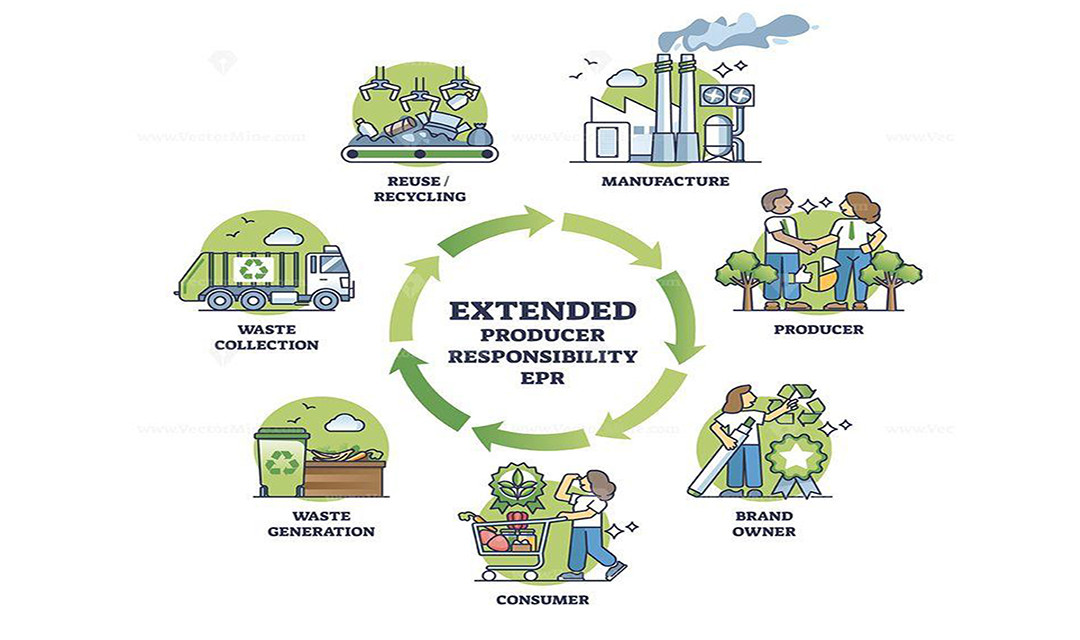Extended Producer Responsibility (EPR) is poised to transform waste management in India by making producers responsible for the entire lifecycle of their Products, fundamentally altering how waste is handled across the country. With India facing the challenge of handling over 62 million tonnes of waste annually, inadequate waste management has led to significant environmental and health concerns. EPR aims to tackle this issue by making producers accountable for their products throughout their entire lifecycle, including the post-consumer waste phase. This strategy not only incentivizes companies to create more sustainable products but also requires them to implement systems for the collection, recycling, and disposal of their goods once they’ve been used. Consequently, EPR is Expected to drive significant progress in recycling and reuse, decrease the overall volume of waste generated, and lessen the environmental impact of discarded products.
As EPR gains traction in India, its impact is expected to extend well beyond the producers. The policy is expected to spur innovation in product design, as manufacturers work to minimize the environmental impact of their products to meet regulatory requirements. This move towards eco-friendly designs can open the door for a circular economy, where materials are reused, recycled, and repurposed, reducing waste and conserving natural resources. Additionally, EPR can significantly alter consumer behavior, as there could be increased demand for products that are easier to recycle or have longer shelf lives. This shift in consumer demand could drive manufacturers to embrace sustainable practices, resulting in fewer single-use products and a greater focus on producing biodegradable or recyclable materials.
The adoption of EPR might accelerate the development of a more efficient waste management infrastructure in India, encompassing advanced recycling facilities, and enhanced waste segregation methods. These advancements could generate new economic opportunities, including job creation in the waste management and recycling sectors. To sum up, EPR can help revolutionize waste management in India by responding to the urgent need for waste management and encouraging sustainable practices by making companies responsible for the full lifecycle of their products. Moreover, by promoting the use of biodegradable and recyclable materials, EPR can contribute to environmental sustainability and support India’s growth toward a cleaner and greener future.



